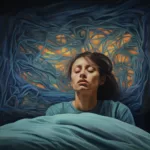Art therapy, an integrative mental health and human services profession, combines active art-making, creative process, and applied psychological theory to enhance the physical, mental, and emotional well-being of individuals. In addiction recovery, art therapy can play a vital role, offering a unique and transformative approach to emotional expression and healing.
Art Therapy as a Form of Expression
Art therapy provides a non-verbal means for individuals to express their thoughts, feelings, and experiences. For those in recovery, this form of expression can be particularly beneficial, allowing them to depict complex emotions and experiences related to addiction that may be challenging to verbalize.
Creating art can offer a safe, non-judgmental space for individuals to explore and express their emotions. This space can provide a sense of safety and acceptance, fostering self-exploration and understanding.
Understanding and Resolving Conflicts
Art therapy can assist in identifying and resolving internal conflicts. By externalizing thoughts and feelings through art, individuals can gain insights into their experiences and behaviors, helping them address underlying issues contributing to their addiction.
Healing Traumas
Many individuals struggling with addiction have histories of trauma. Art therapy can provide a means to express and process traumatic experiences, contributing to healing and recovery.
Building Self-Esteem and Confidence
The creative process involved in art therapy can boost self-esteem and confidence. Accomplishment in creating art can foster a sense of self-efficacy, which can be transformative in the recovery process.
Community Connection
Art therapy can also foster a sense of community and shared experience. Group art therapy sessions can offer opportunities for connection, mutual support, and shared understanding, which can be invaluable in the recovery journey.
Final Thoughts
Rehabilitation centers like 360 Integrated Recovery recognize the value of art therapy and include it as part of their comprehensive treatment programs. By incorporating this therapeutic approach, they provide individuals with innovative and effective ways to express and understand their emotions, contributing to a well-rounded recovery journey.
Family and community can enhance the benefits of art therapy. Whether by participating in shared creative activities, showing interest in a loved one’s artistic creations, or providing encouragement, their support can make a significant difference in the recovery process.
In conclusion, art therapy offers a unique and powerful tool for emotional expression in addiction recovery. By fostering a creative outlet for self-expression, understanding, and healing, art therapy can significantly enhance the recovery process, leading not just to sobriety, but to an enriched, balanced, and more fulfilling life.




